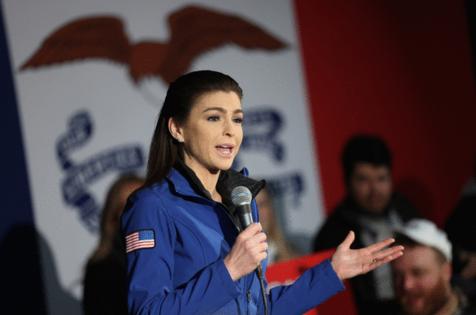Financial independence eludes Hope Florida 'graduate' 3 years later
Published in News & Features
TALLAHASSEE — Celia Franjul is one of the 30,000 people Hope Florida boasts it helped get out of poverty and off government assistance.
She is even featured in the "Hope Florida" magazine alongside a softly lit photo of two children hugging a woman — one of four success stories touted by the organization that has provided few specifics to support its claims of impact.
The photo is not of her or her family, however. And her actual encounter with Hope Florida — the embattled organization embraced by First Lady Casey DeSantis — is very different from the one featured in the online magazine.
Three years after she was referred to Hope Florida, Franjul, 42, appears to be no better off than she was.
She lives with her three youngest daughters in a double-wide mobile home in Branford, an economically depressed rural community of fewer than 1,000 people northwest of Gainesville. The only employed person in her household is her fiancé, who works at a collection agency.
Franjul is not working, and she and her children are still on Medicaid — the government-funded health insurance for the poor — just as they were three years ago.
Hope Florida provided “moral support,” she said, but not much tangible help as most of its work involves sending clients to other organizations. “Everything is referrals with them,” she said.
Hope Florida started out as a pilot program in 2019, run by the Department of Children and Families. It was embraced by Casey DeSantis four years ago as an alternative to traditional welfare. She and her husband, Gov. Ron DeSantis, and other administration officials boast it has helped 30,000 people get off food stamps and welfare by referring them to private groups, thereby saving the state $108 million a year.
That savings figure is based on the amount of benefits those people no longer receive, DCF Secretary Taylor Hatch told lawmakers at a House budget hearing this week.
But Rep. Alison Tant, D-Tallahassee, pointed out that most welfare benefits are paid for with federal money.
DCF, which runs the state’s welfare system and oversees Hope Florida, is steering people who seek benefits away from state aid to Hope Florida as an alternative, Hatch explained.
Hope Florida also raises funds through its charity arm, The Hope Florida Foundation, and has given out close to $13 million in grants to various nonprofits and religious organizations throughout Florida.
The program has come under fire in recent weeks for not providing lawmakers with more specific data to back up its claims of success or providing them explanations for how it has used millions of dollars in state funds to help people off of government aid.
The foundation is also embroiled in a scandal, and a possibly illegal scheme, involving a $10 million donation — the result of a state Medicaid settlement — that lawmakers claim was funneled from the foundation to a political action committee.
Franjul’s story illustrates why lawmakers want more answers from those running the program.
Tracking down someone who received assistance from Hope Florida was difficult, but Orlando Sentinel found Franjul.
The short magazine story says Franjul was unemployed and on the verge of being homeless when she was referred to Hope Florida in October 2022 for help with car repairs, paying her utilities and finding day care for her children. The organization helped her pay her utilities and find childcare, a job and a permanent home in Flagler County, it says.
“During the last follow-up with her Hope Navigator, Celia shared that all barriers were removed, and she was able to graduate from Hope Florida,” the story reads.
But Franjul said she was not unemployed or nearly homeless when she first contacted Hope Florida. She was pregnant, working part-time and getting her master’s degree in criminology at the University of Central Florida.
“It was a very stressful time for me,” she said
She was looking for help with her utilities and finding affordable day care. Her “Hope Navigator,” essentially a case manager, was unable to help with utilities, though she gave Franjul referrals to two organizations that help pay electric bills. But it turned out those groups only helped veterans. She was not a veteran.
“That was not for me,” she said.
The navigator also steered her to her local Early Learning Coalition, a state-created group that helps parents get subsidized childcare, which did get her assistance for day care costs, she said.
Even though she obtained her master’s degree in criminology, has a cosmetology license and a real estate license, Franjul still is finding it difficult to obtain full-time employment. “The economy is slow,” she said. “I am hoping it picks up.”
She wants to raise enough money through crowdfunding to open a coffee shop in Branford. She tried to get a loan but the student loans she had taken out for graduate school had negatively affected her credit rating.
The best thing about Hope Florida was having someone to talk to, someone who encouraged her not to give up, she said.
“What I received from Hope Florida was moral support,” Franjul said.
She also got a letter from Casey DeSantis thanking her for being a part of Hope Florida.
_____
©2025 Orlando Sentinel. Visit orlandosentinel.com. Distributed by Tribune Content Agency, LLC.







Comments